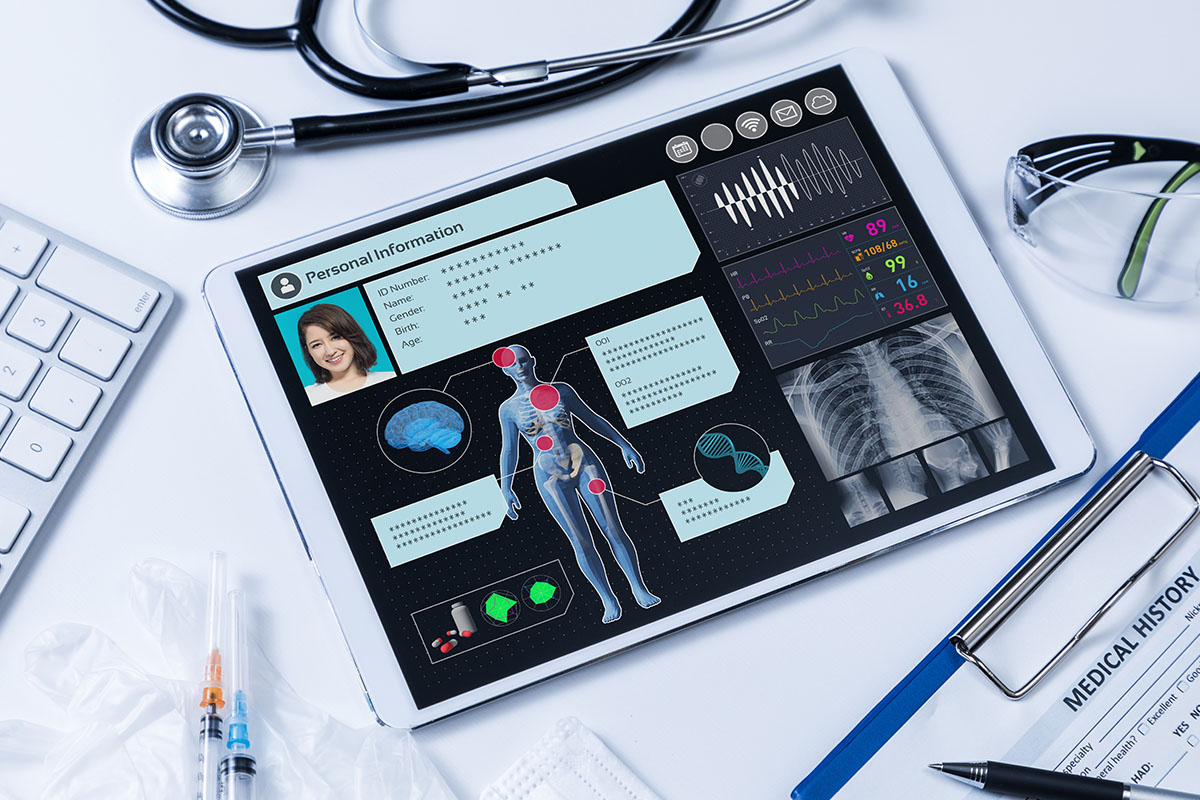Getting Your Data to the Right Place at the Right Time
CRISP gives your healthcare providers a view into your medical history, thus giving you a more efficient, safer, and quicker patient experience.
CRISP gives your healthcare providers a view into your medical history, thus giving you a more efficient, safer, and quicker patient experience.
CRISP is the designated Health Information Exchange (HIE) in Maryland. An HIE is a way of instantly sharing health information among doctors’ offices, hospitals, labs, radiology centers, and other healthcare organizations. CRISP allows providers and organizations coordinating your care to view your medical history. For example, providers can review recent lab results or see information about your recent hospital encounters through CRISP tools. CRISP sharing information allows organizations to provide safer, more timely, and efficient patient-centered care. Security of all your health information is our top priority at CRISP.







Healthcare providers will share information about you through CRISP that they believe is vital knowledge for your other healthcare providers. CRISP may have access to Health Records from your doctors, hospitals, and pharmacies that you have visited. Providers may share your test results, radiology images, notes, or other information about your care. They may also share a summary containing critical health information.
CRISP connects to all 48 hospitals in Maryland and shares hospital information such as discharge paperwork and labs with your other providers. Certain sensitive information, such as addiction treatment details, can only be shared with your written consent.
If your healthcare provider shares information with or views information in CRISP, they must inform you through their Notice of Privacy Practices; a document you receive upon appointment check-ins.


CRISP follows all federal and state laws and will only share your data for the following purposes: healthcare treatment, care coordination, quality improvement, public health, and research. CRISP does not share any of your information for payment or marketing purposes.
CRISP only allows providers to use healthcare information the CRISP Clinical Advisory Committee believes will help improve healthcare. The approved purposes for using data are listed below. Future uses of your information approved by the Clinical Advisory Board will be added to the list below.
State and federal laws give you specific rights about your health data and whether it is shared through CRISP. You have the right to:


If you do NOT want CRISP to share your health information, you can opt-out of CRISP at any time. If you opt-out, doctors and nurses will not be able to search for your Health Records through the HIE, and your information will not be available in the event of an emergency. Your records will not be used for research or quality improvement. Any information a doctor may have seen in CRISP and entered into your medical record before you opted out will stay in your medical record with that doctor but will not be shared through CRISP. You can also choose to opt-out of having your data used for research only. If you choose the “Research Only” opt-out option, your data will still be shared through the HIE for uses related to your clinical care, but it will not be available to researchers for approved clinical studies as part of the CRISP Research Initiative.
Your doctors will still have the option to select CRISP to get your data sent directly to them from labs. Also, Maryland law does not allow you to opt-out of public health reporting, such as reporting specific diseases to public health officials. CRISP is required to make these reports even if you have opted out.
The Maryland Prescription Drug Monitoring Program (PDMP) is also required by law, so information about your prescriptions will still be shared on the CRISP HIE network even if you have opted out.
Opting out of the CRISP HIE network is easy. You can do it three ways:

Regardless of health status, everyone over the age of 18 is encouraged to think about and document their values and treatment preferences to guide future medical decisions about their care. This includes appointing a health care agent. Thinking about the types of treatment you would or wouldn’t like to receive and potential outcomes is important before a medical crisis occurs. Start the conversation with people you trust. Document your preferences in an advance directive, and then talk to your health care provider about securely storing a copy in their electronic health record system. You can also consider creating and storing your advance directive in an online service like MyDirectives.com.
Pursuant to Maryland regulations (COMAR § 10.25.19), the Maryland Health Care Commission maintains rigorous criteria, including privacy and security standards, for recognizing advance directive services that are authorized to connect to CRISP, the Maryland-designated Health Information Exchange. Currently, the following services have been recognized by the Maryland Health Care Commission and vetted through its criteria (COMAR 10.25.19).
By clicking on the above link, you are being routed to a state-recognized electronic advanced directive service that may share your advance directive with the state-designated Health Information Exchange.
More information about how to get started with your advance directive, including sample forms, is available on the Maryland Attorney General’s website.
















